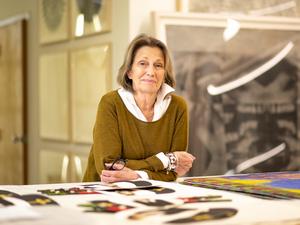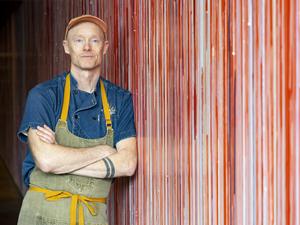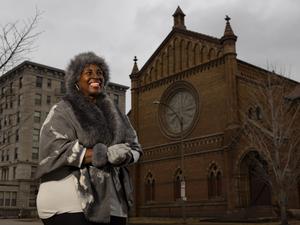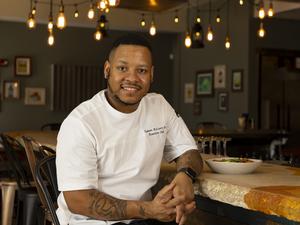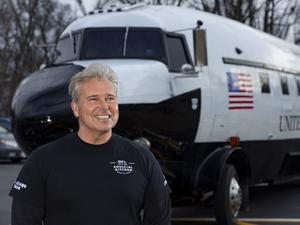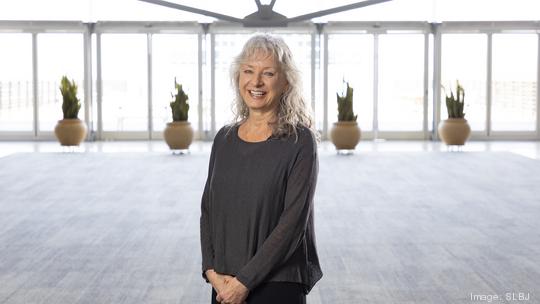
When Toni Kutchan joined the Donald Danforth Plant Science Center 16 years ago, she was no stranger to St. Louis.
The Chicago native earned her Ph.D from Saint Louis University. However, Kutchan spent the bulk of her career a long way from the Midwest — working for 20 years in Germany and staying overseas much longer than she initially anticipated.
But after two decades, Kutchan decided she wanted to return home to the U.S. and found her next role at the Danforth Center, joining the nonprofit research institute within its first decade of operations.
“I thought it was at the time just a crazy, exciting initiative to found a private institute for plant science,” Kutchan said.
In addition to being a principal investor and vice president of research at the Danforth Center, Kutchan last year was elected president of the board of trustees of the Academy of Science St. Louis, which seeks to advance public understanding of, and interest in, the sciences. The Academy's first female president since its founding in 1856, Kutchan is planning for the future of its science literacy initiatives in St. Louis.
How did you end up in Germany? I worked for 20 years in Germany in the university system in Munich and in a town called Halle that's in the former East Germany and about a hundred miles south of Berlin. I went there as a postdoctoral fellow to work at a lab in an area that I was interested in at the University of Munich.
What kept you there for two decades? I went there just to spend a year or two as a postdoctoral fellow and ended up working my way through the German system. In Germany, you do a second doctoral degree, it's called the habilitation, and that enables you to apply for a job as a professor. I ended up doing that and then getting a job as a professor and staying. My parents were both from Europe, from Croatia, and we spent a lot of time there as kids in the summer, and around Europe, visiting family. It was actually something very familiar to me and so it was easy to go there. For my field of research at the time, which is studying how plants make medicinal compounds, the Munich department was very advanced at that. It was scientifically a really good place to go.
You mentioned your research. What does it involve? My research since my graduate school days has been studying how plants make medicinal compounds. About 25% of our pharmaceuticals are either coming directly from plants or they're based on plant drugs. Over the years, we studied exactly how plants make these very complicated molecules and we are looking into alternative production sources for those molecules. It becomes relevant when you find a new anti-cancer compound in a plant that is growing in the Amazon or it's growing up in the mountains someplace and it cannot be readily cultivated. If it's an important enough compound, how do you get enough of it to help the people who would benefit by being treated with it?
When I came to the Danforth Center, in working with so many collaborative colleagues, I became interested in biofuels produced in plants. There are groups here that study how plants make oils and try to alter the oil content of oil seeds. Some of those projects were about how you can make plant oils into a higher energy dense fuel so that you can fly airplanes on it.
You recently took on the role of president of the board at the Academy of Science St. Louis. What is the role of that group? The academy has been around for 166 years, so it's one of the older institutions in St. Louis. Its mission is science literacy. It is educating the general public about science. I think that's always been relevant, but you look at the past couple of years during the pandemic and you see how incredibly important it is that the public understands science and trusts science. The academy has been very active in that for many years.
What are your goals for the academy? I took over as president in mid-December and now we're putting the process in place to start evaluating and make plans for the future. St. Louis and the region have incredibly exciting initiatives going on right now in advanced manufacturing, geospatial, computation, not to mention what we do here at the Danforth Center in precision agriculture and food security. I would like to see the academy sitting in the center and partnering with all the relevant organizations to give out the messaging that's most relevant to the region today and what's going to be developing over the next generation.
What do you like to do in your free time? I'm a big fan of the performing arts and in particular how they're offered in St. Louis. We're very frequently out listening to music and totally enthusiastic about the way Grand Center has developed. And how that whole area has been uplifted and now is being renovated and making it really central and exciting with performing arts centers, like Jazz at the Bistro, Powell Hall, Fox Theater and The Sheldon and The Dark Room. I’m also a big fan of The Repertory Theatre and Opera Theatre of Saint Louis.
Is there a certain type of music or performance you listen to most frequently? Probably the most often is jazz and classical.
More about Toni Kutchan
Title: Vice president for research and Oliver M. Langenberg Distinguished Investigator at the Donald Danforth Plant Science Center; president of the board of trustees of the Academy of Science St. Louis
Age: 65
Family: Kutchan's partner is Mark Halton.
Education: Ph.D in biochemistry from Saint Louis University and bachelor’s degree in chemistry from the Illinois Institute of Technology. Kutchan has a second doctorate degree from the University of Munich.
Toni Kutchan and Mark Halton are partners. A previous version of this story incorrectly described their relationship.
